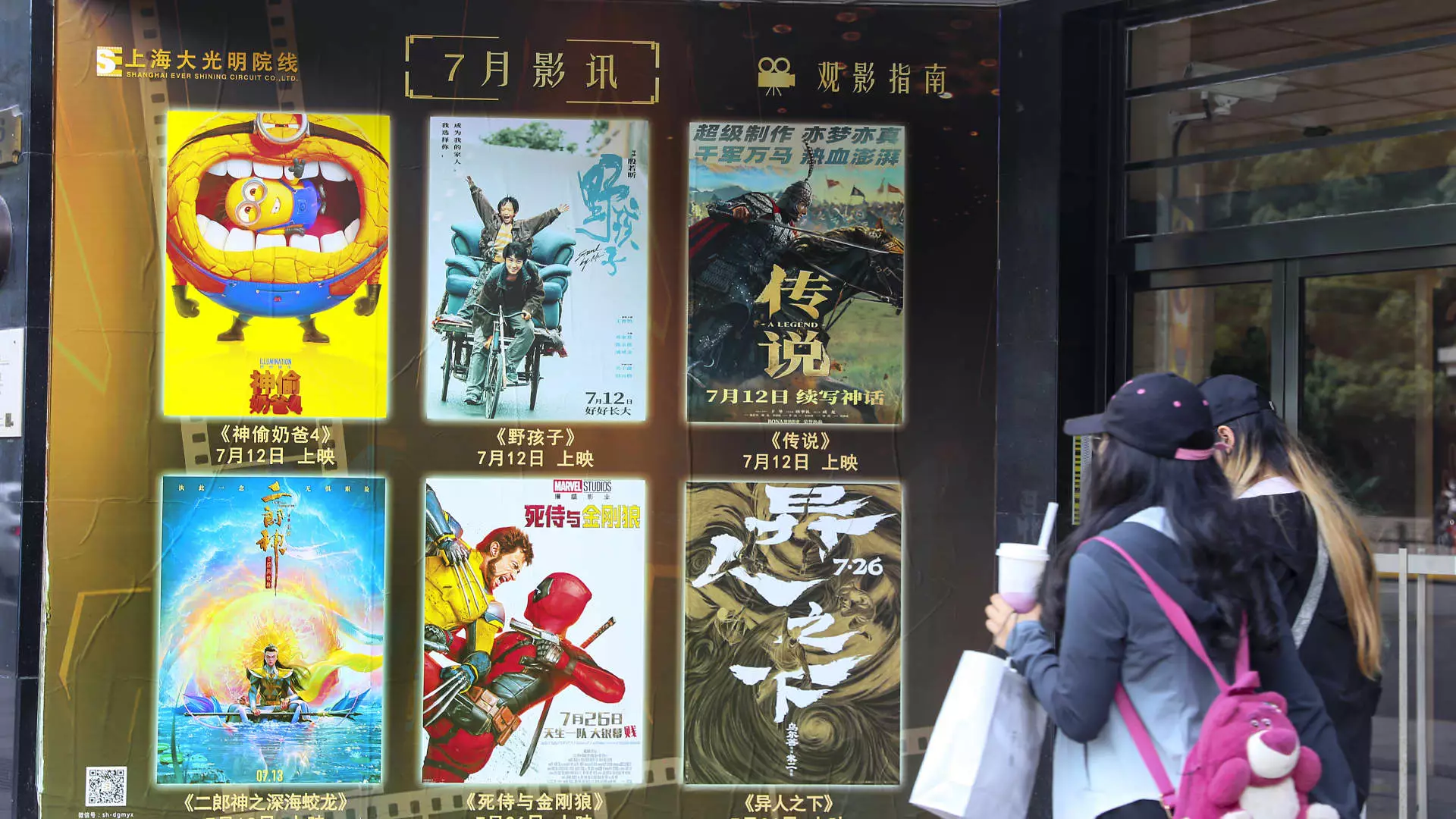In the not-so-distant past, Hollywood reigned supreme in the global cinematic landscape. With its colorful red carpets and grandiose blockbusters, American films not only dominated box offices but also wielded a significant cultural influence worldwide. However, this dominance is now being challenged as geopolitical shifts reshape the film industry’s landscape. President Donald Trump’s ongoing trade war with China is a stark reflection of how political dynamics can strain even the most apparently invulnerable sectors, like Hollywood. As tariffs increase, the ripple effects leave American studios scrambling, and the beloved dream factory is waking up to a chilling reality: it is losing ground in one of its largest and once most lucrative markets.
Revenue Declines Amidst Rising Competition
The Chinese box office, once a beacon of hope for American studios, is dimming. Studios like Disney and Warner Bros. are not just watching their stock prices dwindle; they’re confronting a profound shift in audience preferences. After all, how can anyone compete with homegrown talent in a market teeming with innovation? As local production capabilities have developed, Chinese filmmakers are producing content that resonates deeply with domestic audiences. The allure of Hollywood is fading like a distant echo, leaving studios to grapple with the sobering reality that their financial forecasts must be recalibrated, often leaving China out of the equation entirely.
Ann Sarnoff, former CEO of Warner Bros., poignantly states that the Chinese market has become “very challenging” for U.S. studios. The financial viability that Hollywood once banked on is waning. The days of expecting a robust box office return from China are fast becoming a relic of the past. With rental rates significantly lower than other markets and an increasingly skeptical audience, the golden era of Hollywood seems to be encased in a glass box—visible, yet unreachable.
The Damaging End of Film Agreements
The expiration of the U.S.-China Film Agreement in 2017 marked a turning point for Hollywood’s penetration into the Chinese market. By allowing for only a limited number of American films annually, the agreement had previously provided Hollywood with a predictable revenue stream. Its sundering has ushered in a new reality where the trading landscape is riddled with barriers. Unfortunately, trade negotiations tend to overlook the cultural products of cinema, focusing instead on the tangible benefits in other sectors, which ultimately leaves Hollywood unprotected in a fraught environment.
Professor Aynne Kokas aptly points out that it was during the Trump administration’s initial trade war when the Chinese box office began flourishing. While U.S. studios engaged in a high-stakes game of political chess, the Chinese entertainment industry was honing its craft and preparing itself for dominance. The result? Hollywood’s strategic miscalculations have led to its own unraveling, irreversibly impacting its position in a market it once viewed as an ally.
Declining Returns and Rising Challenges
Cinematic successes from Hollywood no longer guarantee the same global traction they once did. The numbers tell a harrowing story: of the nine Hollywood titles that crossed the $100 million mark in China in 2019, the trend since has only seen further decline, with only one film scaling the $200 million threshold. In bleak contrast, the burgeoning Chinese film market is thriving; local productions have struck gold, with “Ne Zha 2” becoming the only film to gross over $1 billion domestically. This signifies a jarring cultural and economic shift that Hollywood hasn’t yet fully grasped or adapted to.
Amid this economic storm, currency fluctuations add another layer of complexity. As the dollar weakens, the prospect of higher box office returns internationally grows ominously. However, the trade-off is crystal clear: the cost of doing business rises. For Hollywood, that means fewer resources to produce films that can compete on a global scale. Far from merely being a localized skirmish, the trade war with China has turned into a battlefield that threatens the entire studio system.
A Perilous Future for Hollywood
As Hollywood executives attempt to navigate this treacherous terrain, the uncertainty surrounding the impact of ongoing tariff decisions looms large. The threat is not only financial but cultural; the world of entertainment is rapidly evolving, and with it, the values and narratives that are cherished. A studio empire built on the fanciful dreams of yesteryear may soon face an unsettling reality—one where American influence is overshadowed by a rising tide of homegrown storytelling. The ultimate fallout of this trade war remains to be seen, but one thing is certain: the genie has escaped the bottle, and Hollywood must evolve or be relegated to the annals of cinematic history.

